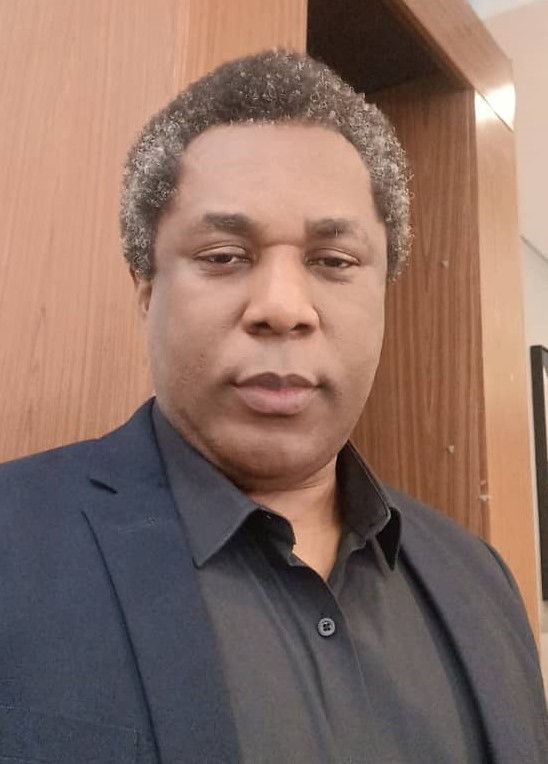By Kelechi Deca
Nigeria unarguably has one of the most expensive debts servicing obligations in the world. But they will never tell you about it. Not the DMO, the Minister of Finance, or the Presidency will say anything in this regard.
So whenever they return from their jamboree road shows and gleefully announce that their bonds offer were oversubscribed, the question a well informed public should ask is, oversubscribed at what cost to generations unborn?
For emphasis, let us do a comparative analysis between the cost of Nigeria’s debt servicing and that of say, South Africa. As at the end of December 2021, Nigeria’s total debt was only 30per cent of South Africa’s total debt. Meaning South Africa was more indebted than Nigeria ( the kind of example Nigerian leaders use to go cap in hand to borrow more, afterall even America dey owe).
But they will never tell you that it costs Nigeria far more to service its debt than it costs South Africa, even though South Africa’s total debt is more than half of Nigeria GDP.
Nigeria’s total debt as at December 2021 was $94.166bn (source: DMO) while South Africa’s total debt at the same period was $261bn (source: SA National Treasury).
A comparison of both economies shows that Nigeria is Africa’s largest economy at $ 420 billion ( just $131 billion short of the combined net worth of Elon Musk and Jeff Bezos) according to the latest estimates from the National Bureau of Statistics (NBS), while South Africa’s GDP is second in Africa at estimated size of $320bn.

But while Nigeria presently spends over 90% of its revenue to service its debt, South Africa spends about 20% of its revenue to service its own debt.
This is because if the amount you are borrowing is high, you are also obligated to pay more, secondly, Nigeria borrows at a very expensive rate, especially the Eurobonds, add to that, because investors see Nigeria as a very high risk country, its debt service is very expensive. Same way that if the amount you are borrowing is high, you also have to pay more.
Nigeria debt service-revenue is not only the most expensive when compared to that of South Africa, it is the same when compared to that of Egypt. Egypt’s debt service-to-revenue was 20.5% in 2021, while Kenya’s was 60% and Uganda’s was30%.
Government apologists are quick to point out that Nigeria’s debt to GDP is still within the accepted threshold and one of the lowest globally, this deflationary tactics aims to give the impression that there is still good space within the borrowing headroom, thus they can still go cap in hand begging whosoever can lend them money, even when the funds are frittered away on noncapital, non revenue yielding projects.
Some might even trickle down to marrying a new wife, or making a side-chics happy. Do you know how much from the borrowed funds that leaked into the personal needs of the suspended Accountant General?
But they will never tell you that debt-to-GDP ratio is a perpetual borrower’s mentality rather than having sleepless nights over the country’s revenue-to-GDP ratio, which is one of the reasons our debts are quite expensive because creditors factor in your ability and capacity to pay back.
Is it not a shameful thing that a country that “buga’s” around with shoulder’s high as the biggest economy in Africa ($420b) has one of the lowest revenue to GDP in the continent, and to imagine that Nigeria with a population of over 200 million, and the largest market in Africa has revenue to GDP of just 9% compared to Ghana with a population of about 31 million, and revenue to GDP of 13%.
Further probe shows that Kenya has revenue to GDP of 16.6 per cent, while Angola has revenue to GDP of 20.9%.There are actually no positive global metrics in the world that Nigeria can be said to make the cutoff mark for a good result.
And why wouldn’t investors perceive the country as a high risk entity when there is basically no stat from Nigeria that gives hope.
In the just released Global Peace Index (2022), Nigeria ranked Nigeria 143 among 163 independent nations and territories, according to the level of peacefulness. Nigeria moved three places up on the log from the 146th position it was ranked last year.
Many African countries are ahead of Nigeria in the ranking, such as Mauritius 28; Ghana 40; The Gambia 45; Sierra Leone 50; Equatorial Guinea 59; Malawi 65; Senegal 70; Morocco 74; Rwanda 72; Liberia 75; Gabon 75;Angola 78; Lesotho 100; Madagascar 8; Mozambique 122; and Namibia 68.
Others are Zambia 56; Tunisia 85;Tanzania 86; Niger 140; Burundi 131; the Benin Republic 105; Botswana 48;Republic of Congo 111; Ivory Coast 108; Cameroon 142, Djibouti 113, Algeria109; South Africa 118; Egypt 126, Eritrea 132, Guinea 123, Guinea Bissau 110;Chad 136; Togo 102; Uganda 121 and Zimbabwe 127.
They are all ahead of Nigeria. This is why the world perceives you as a backwater country that should escorted with a long stick like a Millipede….
But do you need the foreign investors to know that something is definitely wrong with the country?
A place where someone will wake up, walk into the forest, and post a Tweet from that that she has been kidnapped with other people, and start calling for help. A place where a man can be shot by the Police because his wife rebuffed the illicit advances of a celebrity…
Such a place should be high risk indeed, especially where peopled by a majority who have normalised the abnormalities.
Yet these things do not make it to the issues worth talking about in the upcoming elections…
These are the Facts of The Matter.
Kelechi Deca is a development journalist and strategic communications expert


